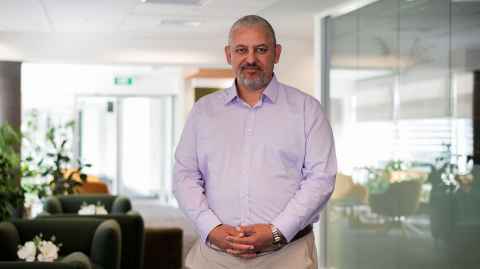A new study shows Māori-led business models could be a solution to economic productivity, wellbeing, and intergenerational wealth.

Research led by Māori academics is highlighting a promising economic pathway: whānau enterprise.
Māori-owned and operated businesses are showing measurable success not just for their owners and staff, but for entire communities.
Published in the book Te Ahunga atu ki ngā Ōhanga Oranga Māori: Towards Māori Economies of Wellbeing, the study on whānau enterprise is co-authored by Professor Jason Mika and PhD candidate Xiaoliang Niu of He Manga Tauhokohoko, University of Auckland's Business School.
The study is of a wider research programme, supported by Ngā Pae o te Māramatanga, New Zealand's Māori Centre of Research Excellence.
"To truly unlock Māori economic potential, we need to stop treating Indigenous business as niche," Professor of Māori Management, Jason Mika says.
"The evidence is there, whānau enterprise is already delivering the kind of transformation we want to see.
"We've been able to show that whānau enterprises are achieving real, measurable outcomes that matter, for whānau, for communities, and for the future economy of Aotearoa."
The Māori Economies of Wellbeing research draws on case studies, interviews, and long-term engagement with Māori-led businesses. The investigation finds that whānau enterprises demonstrate:
- Lower staff turnover
- Improved workplace safety and wellbeing
- Priority for people over profit, which creates a productive work environment
- Higher levels of homeownership among employees
- Increased financial capability and independence
Whānau enterprise is built on kaupapa Māori values that align with te Tiriti o Waitangi. By doing what it is doing for and with whānau, honouring te Tiriti is core to this business models' success, he says.
Values such as manaakitanga (care), whakapapa (relationship), and kaitiakitanga (stewardship) are simple yet effective principles that transform economic development and, therefore, grow work opportunities.
One case study took place in Te Tai Tokerau, where the business treated staff as extended family, not just workers. It also reinvested profits into collective goals like housing, education, and leadership development.
The report argues that traditional measures of business success - like GDP or profit margins - don't fully capture the value created by such enterprises. Instead, whānau enterprises measure success in terms of intergenerational wealth, cultural strength, and community resilience.
"This is a different way of doing business," Mika says. "It's relational, values-driven, and built for the long haul."
The evidence also highlights how whānau enterprises contribute to a circular economy, where money, resources, and opportunities are recycled back into the community. This approach strengthens social ties and ensures the benefits of business growth are widely shared - especially in regions where employment and housing access are critical issues.
The authors of the research are calling on policymakers, funders, and investors to recognise the full potential of whānau enterprise. That means designing funding models that reflect Māori ways of working, valuing long-term outcomes over short-term returns, and enabling whānau to grow enterprises on their own terms.

PhD researcher Xiaoliang Niu says there are many parallels between Māori and Chinese business models, where success is measured by collective well-being and reputation, not just individual gains.
"As a tangata tiriti researcher with Chinese heritage, I feel privileged to work on Māori-led research," Xiaoliang says.
"Whanaungatanga in Māori enterprises resonate with the concept of 'guanxi' (关系), or relationship. In China, guanxi is understood as reciprocal obligation rather than cronyism.
"Both traditions treat trusted relationships, not contracts, as the primary asset - unlocking cooperation, knowledge sharing and market access.
"Manaakitanga, the commitment to genuine care and aroha for workers as whānau, echoes the Confucian virtue 'Renqing' (人情) or humaneness, the "people-first" management approach in China.
"Servant leadership that many Māori enterprises adopted, flips the traditional hierarchy of business; managers, and owners are now at the bottom of the pyramid, leading by supporting the workers."
Chinese businesses, says Xiaoliang, particularly family businesses, prioritise legacy and community over short-term returns, echoing the Māori business model as a vehicle for intergenerational aspirations.
"This long-term perspective sustains investment in staff, innovation and the environment, fostering resilience for both businesses and people."
As Aotearoa continues to grapple with inequality, low productivity, and the growing need for inclusive growth, Professor Mika says whānau enterprise is not just a Māori solution, but a national opportunity.
Te Ahunga atu ki ngā Ōhanga Oranga Māori: Towards Māori Economies of Wellbeing is co-authored by Professor Chellie Spiller (University of Waikato), Dr Matthew Rout (University of Canterbury), Professor Jarrod Haar (Massey University), Professor John Reid (University of Canterbury), Dr Andre Poysner (Auckland University of Technology), and Tāne Karamaina. Professor Jason Mika and Xiaoliang Niu (University of Auckland) wrote about Whānau wellbeing through enterprise: Founder perspectives in Chapter 3.






